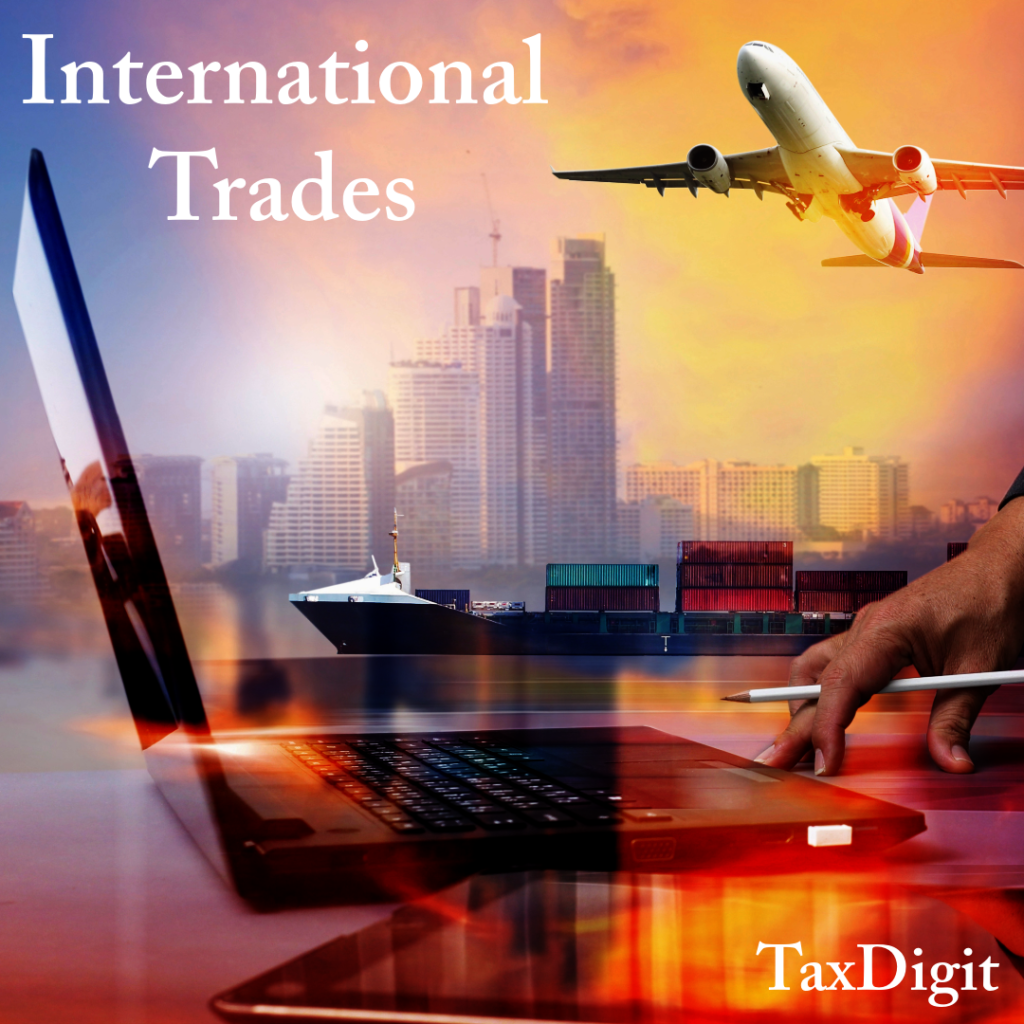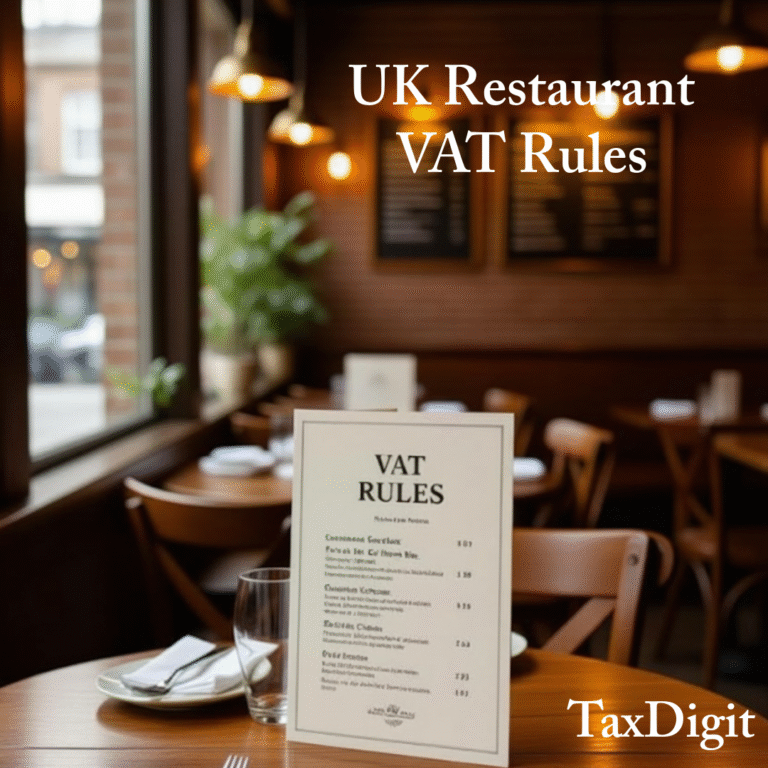In the dynamic landscape of international trade, understanding the intricacies of Value Added Tax (VAT) is crucial for businesses engaged in the export and import of goods and services. At TaxDigit, we strive to simplify complex tax matters, providing businesses with the knowledge they need to navigate these waters seamlessly. Contact us at TaxDigit for more information on VAT and international transactions.

When goods are exported from the UK by a registered UK taxable supplier, it’s considered a zero-rated supply made in the UK. Services delivered outside the UK to an overseas business are also exempt from UK VAT. VAT registered exporters can recover UK input VAT related to the exported goods and services, ensuring a smoother financial process for businesses engaged in international trade.
Import of Goods: Postponed Accounting
The importation of goods into the UK incurs Output VAT, with payment typically required upon importation. However, businesses have the option of utilizing postponed accounting, a reverse charge procedure. Under this system, import VAT is declared on the VAT return as output VAT but can be reclaimed as input VAT on the same return. This innovative approach minimizes the immediate financial burden on businesses engaged in importing goods.
It’s important to note that postponed accounting is not mandatory and may not be applicable in certain circumstances. Businesses should carefully evaluate whether this approach aligns with their specific needs and circumstances.
Import of Services from Outside the UK – International Services
Services supplied to overseas customers follow specific rules based on the nature of the customer. For business customers (B2B), the place of supply is where the customer is established. This means that services provided to overseas business customers fall outside the scope of UK VAT.
Conversely, for non-business customers (B2C), the place of supply is where the supplier is established. If a UK business supplies services to overseas non-business customers, the place of supply is considered the UK, and output VAT is charged at the standard UK rate.
The “reverse charging” procedure comes into play when a UK business receives services from overseas suppliers. This ensures that VAT is accounted for on the VAT return, preventing overseas suppliers from gaining a competitive advantage over UK VAT-registered suppliers by offering VAT-free services.
Understanding the time of supply for cross-border services is crucial. For single supplies, it’s the earlier of the date of completion or payment, while continuous supplies follow the end of each periodic billing period or the date of payment.
As businesses engage in international transactions, these VAT considerations become paramount. For comprehensive guidance and assistance tailored to your specific needs, contact us at TaxDigit. We’re here to ensure your international trade endeavors are both compliant and efficient.



